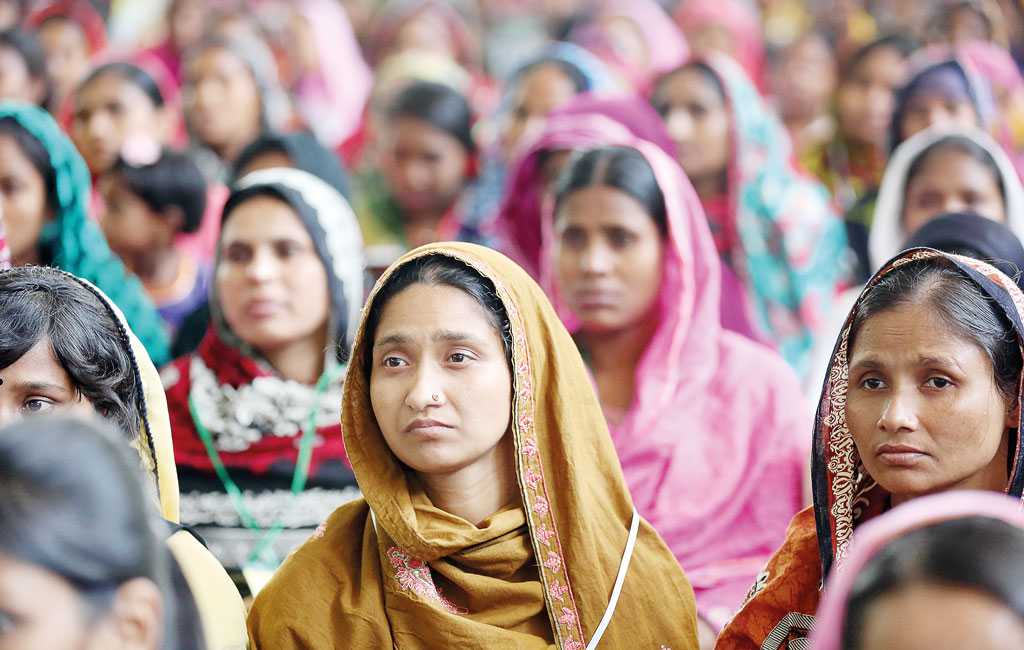Bangladesh slumps 15 spots to 142nd for women's quality of life

Image collected
Areas with armed conflicts or where the security situation worsened also saw deterioration in women's quality of life
Bangladesh has ranked 142nd among 167 countries in an index that measures women’s wellbeing and empowerment in homes, communities, and societies, according to research published on Tuesday.
The survey found the state of women's rights is not "all doom and gloom" around the world.
The Women, Peace and Security Index by the Georgetown University's Institute for Women, Peace and Security and Peace Research Institute Oslo downgraded Bangladesh’s rank from 127th in 2017 out of 153 countries to 142nd this year.
The research organizations has been looking at more than 150 countries since 2017 when the first Women, Peace and Security Index was compiled, assessing several variables including employment, security, political representation and access to bank accounts.
It drew data from international organizations such as the International Labour Organization, the United Nations, the World Bank, and others to provide comprehensive insights into women’s well-being and empowerment in each country.
Norway took the top spot, with a perfect score in women's financial inclusion and making significant gains in women's perception of safety. Switzerland secured the second slot, followed by Finland, Denmark and Iceland.
Yemen was the only country found to have experienced "significant deterioration," and came in last in the ranking, followed by Afghanistan, Syria, Pakistan and South Sudan.
Areas with armed conflicts or where the security situation worsened also saw deterioration in women's quality of life, researchers said.
Statistics show, 57% of men in Bangladesh believe it’s unacceptable for women to have a paid job. It added, 69.9% of women feel safe in their neighbourhoods at night, down from 80.4% in the previous index.
Bangladesh also showed poor performance in the indicators like women’s employment and legal discrimination.
Bangladeshi women’s employment rose by almost a third over the last two decades, to 38% in the 2019 index. Manufacturing became more important, while employment in agriculture shrank.
The research stated, the Rana Plaza garment factory collapse in 2013, which killed more than a thousand workers, and declining garment exports have reportedly shifted women into lower productivity activities; more than 85% of working women are in the informal sector.
Discriminatory laws have adverse repercussions, making it harder for 34% women in Bangladesh to own property, open bank accounts, start a business, or take a job and enter professions restricted to men. The percentage is a rise from 2017’s 29%.
The index captures the aggregate score for laws and regulations that limit women’s ability to participate in society and the economy or that differentiate between men and women.
"There are important areas of progress. It's not all doom and gloom," said Jeni Klugman, managing director of the Georgetown Institute and lead author of the index.
Gains were strongest in women's access to financial accounts, either mobile or at conventional banks, in fewer discriminatory laws and through increasing legislative representation.
The research is intended to inform and inspire action, Klugman said, noting that the factors it weighed are integral to the global development goals adopted unanimously by the United Nations in 2015.
"It's not like it's something we invented out of thin air. It's something which is grounded in those long, hard-negotiated agreements, so we're holding them to account for that."
The UN adopted 17 goals, including gender equality and an end to hunger, poverty and other ills, to be achieved by 2030.
The new research found deterioration in women's lives was often linked to security, which worsened in almost 50 countries.
The report said legal discrimination means about 2.7 billion women globally are restricted from working in the same jobs as men.
Source: https://www.dhakatribune.com